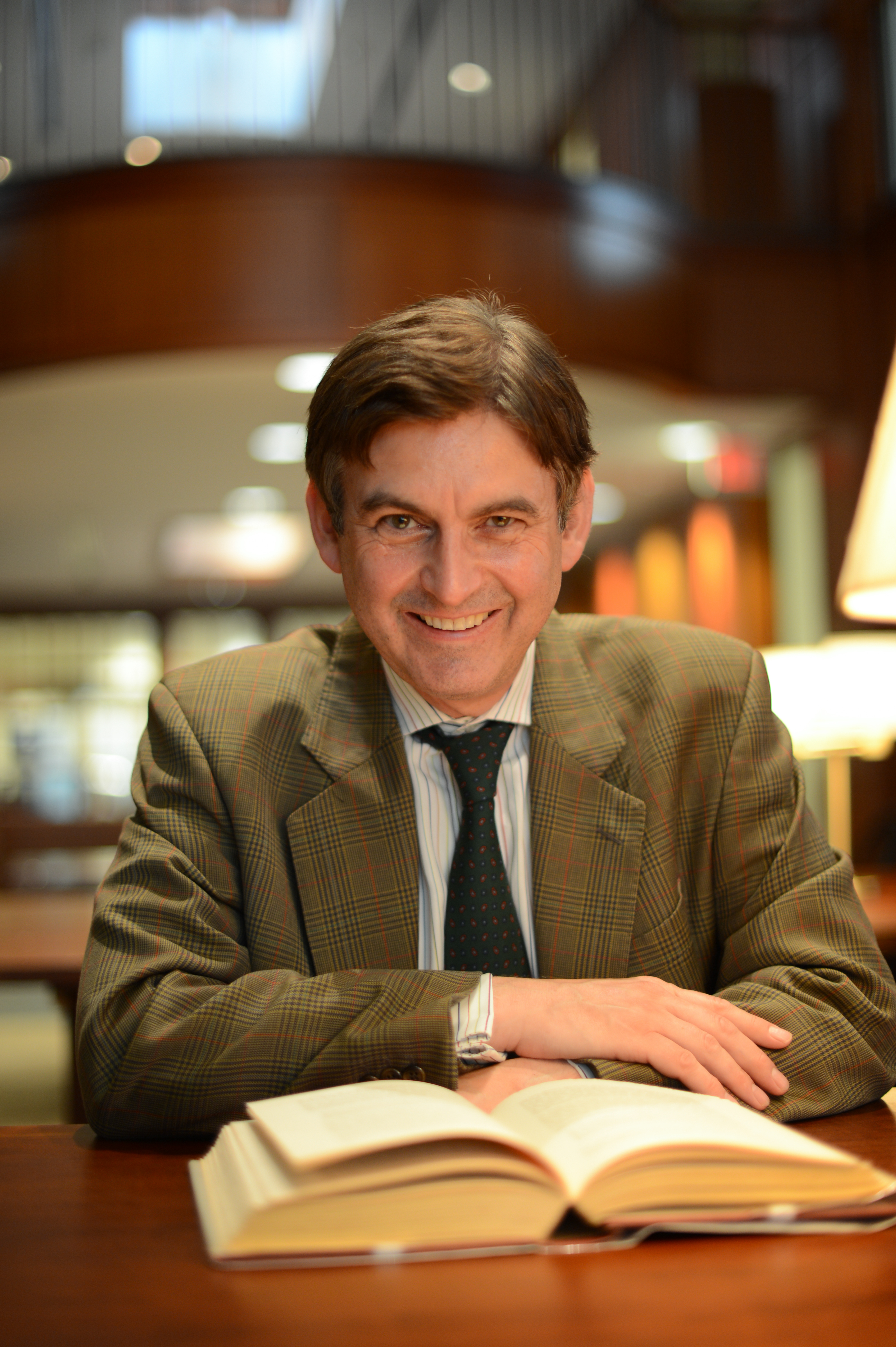University of Virginia historian Andrew Jackson O’Shaughnessy has won an American history prize for a book that looks at the British leadership’s perspective of the American Revolutionary War.
O’Shaughnessy, professor in the Corcoran Department of History and Saunders Director of the Robert H. Smith International Center for Jefferson Studies at Monticello, was named Wednesday as the winner of the New-York Historical Society’s annual American History Book Prize. He will receive the $50,000 prize, a medal and the title of “American Historian Laureate” at a black-tie event in April.
“The Men Who Lost America: British Leadership, the American Revolution and the Fate of the Empire” focuses on and dispels a theory that incompetent military commanders and political leaders in Britain were to blame for the empire’s defeat during the American Revolution. Weaving together personal stories of 10 prominent men who directed the British side of the war, O’Shaughnessy uncovers the reasons that rebellious colonials were able to achieve their surprising victory.
“These were people of substance,” O’Shaughnessy said of the British leaders. “They were worthy adversaries. The popular history, that they were aristocrats given to buffoonery, diminishes the American achievement.”
He said by concentrating on such figures as Gen. John Burgoyne, Lord George Germain, Sir Henry Clinton and Lord Charles Cornwallis, he was able to bring the personalities to the forefront and describe the British point of view.
“I tell the tale on a timeline, and the stories are interlinked,” he said. “It keeps the perspective on the British. With the individual stories there is some overlap but it lets me stress the different perspectives of the same events.”
Paul Halliday, who chairs U.Va.’s history department, said the book is suffused with O’Shaughnessy’s sense of balance and sympathy.
“The book reminds us that it is too easy for the victors to dismiss the past’s losers as stupid or contemptible,” he said. “With quiet good sense and analytic generosity, O’Shaugnessy reminds us that ‘not so fast’ is not only an injunction to careful intellectual work, but it also amounts to an ethical obligation we all owe to the people of the past. He has succeeded in helping us take seriously the people who believed fully in a cause in which they engaged their very real talents, even though they did not prevail. That is the mark of the very best historical writing.”
O’Shaughnessy thought of the title and structure in the mid-1980s, but had originally planned it as a documentary series. He began to work on the book in the fall of 2001.
“I was born in Britain and was always very aware of the seeming neglect of the British perspective of the American Revolution,” he said. “It was generally not taught in high schools in Britain and the British often seemed to be caricatured in the films and popular histories in the U.S. This dimension not only makes the war more fascinating, but much more intelligible and easier to comprehend.”
O’Shaughnessy, who has both U.S. and British citizenship, said the book has been very well-received in England, and he has made presentations in venues such as the U.Va. Club and the British Library in London.
“I think there is a latent interest in the American Revolution in England,” he said. “More British papers have reviewed the book than American newspapers.”
The book also was well received by the New-York Historical Society’s prize committee, which selected “The Men Who Lost America” from a field of 142 submissions.
“The Men Who Lost America,’ meticulously researched and beautifully written, embodies all the qualities we expect in the winner of the American History Book Prize,” Pam Schafler, chair of the New-York Historical Society’s board of trustees, said in announcing the award. “By recasting the narrative of the British loss against a background of political rivalry and Parliamentary debate, O’Shaughnessy turns a familiar story into a suspenseful read.”
His book also has won the Fraunces Tavern Museum Book Award for histories of the Revolutionary period, presented by the Sons of the American Revolution and New York's Fraunces Tavern Museum, and is on the short list for the George Washington Book Prize – he and U.Va. history colleague Alan Taylor are two of the three finalists – and the Guggenheim-Lehrman Prize for Military History. It won the 2013 Great Midwest Book Festival in the Regional Literature category and the 2014 Cincinnati History Prize, sponsored by the Society of the Cincinnati in the State of New Jersey. It has received an honorable mention for the 2013 American Publishers Awards for Professional and Scholarly Excellence in the U.S. History category and was voted best book of the year by the New York Roundtable of the American Revolution.
O’Shaughnessy also wrote “An Empire Divided: The American Revolution and the British Caribbean,” and is an editor of the Jeffersonian American Series of the University of Virginia Press. He is a fellow of the Royal Historical Society.
O’Shaughnessy, who has taught at U.Va. for more than 10 years, received his undergraduate degree and doctorate from Oxford University.
The most recent winners of The American History Book Prize were Doris Kearns Goodwin for “Team of Rivals: The Political Genius of Abraham Lincoln,” in 2006; David Nasaw for “Andrew Carnegie“ in 2007; Daniel Walker Howe for “What Hath God Wrought: The Transformation of America, 1815-1848,” in 2008; Drew Gilpin Faust for “This Republic of Suffering: Death and the American Civil War,” in 2009; Gordon S. Wood for “Empire of Liberty: A History of the Early Republic, 1789-1815,” in 2010; Ron Chernow for “George Washington: A Life,” in 2011; John Lewis Gaddis for “George F. Kennan: An American Life,” in 2012; and Robert Caro for “Lyndon Johnson: The Passage of Power,” in 2013.
Media Contact
Article Information
March 5, 2014
/content/uva-history-professor-wins-history-book-prize

